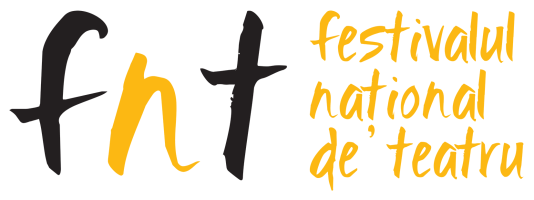de fnt.ro

Two of today’s most impressive European stage directors were invited to work in Romania this year: [b]Matthias Langhoff[/b] by the Hungarian State Theater in Cluj Napoca, and [b]Rodrigo Garcia[/b] by the National Theater in Timisoara. The unique productions they have mounted will be premiered at the National Theater Festival. [b]Matthias Langhoff[/b], l’enfant terrible of contemporary German theater, is, among European directors, one with a most impressive career. His shows were performed on major German stages (Berliner Ensemble, Volksbühne and Schauspielhaus), as well as in important theaters in Italy, France, Switzerland and South America. He was manager of Vidy Theater in Lausanne and the Berliner Ensemble. He is a member of the Berlin Academy and Officer of the Legion of Honor. Langhoff is radical and surprising as a stage director, while his work is perfectly rigorous. Part of his esthetics consists in saturating the stage with signs, using various means: photography, film screening, references to other theatrical or cinematographic works, interactivity, very elaborated sets and costumes. Matthias Langhoff staged many plays by Brecht and Shakespeare, among which [i]Othello[/i], [i]Titus Andronicus[/i], [i]King Lear[/i], [i]Macbeth[/i], considered by critics huge destabilization machines carrying heavy meanings. As a friend and permanent collaborator of the playwright Heiner Müller, he first directed his adaptations after Shakespeare ([i]Hamletmaschine[/i], [i]Anatomy Titus Fall of Rome[/i], etc). Invited to work in Romania by the [b]Hungarian State Theater in Cluj Napoca[/b], Matthias Langhoff will see his production of [b][i]Measure for Measure[/i][/b] by William Shakespeare premiered in the NTF. [b]Saturday, October 30, at 18.30[/b] and [b]Sunday, October 31, at 18.00[/b] the Izvor hall of Bulandra Theater will host the two performances in the NTF. [b]Monday, November 1, at 11.00[/b], the Löwendal Foundation will be the meeting place of the stage director with the audience and the press. An author who is both idolized and controversial, whose discourse is emblematic for the times we are living in, [b]Rodrigo Garcia[/b] confronts their contradictions head-on, unceremoniously. Born in Argentina, now living in Madrid, Garcia is the founder of Carniceria Teatro (Butcher’s Shop Theater) – emphasizing with this name that he has broken away from his father’s butcher’s business, taking up an entirely different career in life. Together with the actors who joined him, he developed a unique theatrical language, winning the critics’ praises and stirring up great controversy among the audience. His performances speak directly, sometimes brutally, brazenly, about the excesses of consumerism which leave no room for reflection, about the hypocrisy of globalization and political correctness. A special poetics, sometimes crude and even shocking in its absolute freedom, characterizes his work both as a playwright and a stage director. Garcia’s plays have been translated and staged all over the world. Among his successes: [i]The Story of Ronald, the McDonald’s Clown, Agamemnon, Throw My Ashes on Mickey, Very Rare, Accidents (Killing to Eat), Versus, Death and Rebirth of a Cowboy[/i], and many more. In 2009, [b]Rodrigo Garcia[/b] received the [b]New Theatrical Realities[/b] prize. Invited to work at the National Theater in Timisoara, Garcia brings on stage an iconoclastic, openly militant show, in which he speaks about violence which has become a daily fact of life. The brutalizing moral crisis downplays the perception of violence, making abuse acceptable. Dogs Not Allowed will be presented in the Festival at the National Opera, [b]Tuesday, November 2, at 18.00[/b], and [b]Wednesday, November 3, at 21.00[/b].
6 March 2011, Articles
Cea de-a XXVI-a ediţie a Festivalului Naţional de Teatru Îi este dedicată artistei Miriam Răducanu.
Arta coregrafică din România s-a impus, de-a lungul timpului, ca un domeniu În care regândirile au avut un rol fundamental, fiind elaborate de personalităţi care au găsit mereu noi modalităţi de expresie.
articol de Gina Şerbănescu, critic de artele spectacolului
O astfel de personalitate este coregrafa şi dansatoarea Miriam Răducanu (n.1924), care a revoluţionat dansul În România prin modul În care a adus laolaltă arte precum poezia sau muzica, reunite, În sinteză, prin forţa şi mesajul unei gestualităţi unice. Pe lângă aportul său creator În domeniul coregrafiei, Miriam Răducanu a avut un rol esenţial la nivelul descoperirii şi formării unor personalităţi artistice precum Gheorghe Iancu sau Gigi Căciuleanu.
Împreună cu Gigi Căciuleanu, iniţiază, la finele anilor ’60, renumitele Nocturne de la Teatrul Ţăndărică, manifestări artistice În care dansul, poezia şi teatrul se Întâlneau Într-o sinteză perfectă, În care se anula graniţa dintre genuri. Nocturnele reprezintă o piatră de hotar pentru ceea ce avea să devină dansul În spaţiul nostru cultural, prin modul În care coregrafia nu se mai defineşte doar ca o artă a mişcării, a gestului sau corpului, ci ca un rezervor de creaţie, În care sunt adunate laolaltă, În mod interdisciplinar, mesaje multiple din arte care nu pot exista izolat.
Este esenţial, de asemenea, rolul pe care Miriam Răducanu l-a avut În planul redescoperiri corporalităţii actorului pe scenă, un exemplu notabil În acest sens fiind spectacolul “O lume pe scenă” de la Teatrul Bulandra, unde mari actori ai scenei româneşti (ajunge să precizăm doar numele Ginei Patrichi sau al Marianei Mihuţ) erau integraţi unei forme de spectacol În care gestul primea semnificaţii necunoscute până atunci În teatrul autohton.
Creatoarea unei poetici a dansului, descoperitoarea unei forme de prezenţă care eliberează corpul de constrângeri stilistice, estetice sau tehnice, Miriam Răducanu se Înscrie În sfera artiştilor care depăşesc cu mult graniţele unui anumit domeniu de creaţie.
Foto: Cristian Munteanu – Irina Tapalagă, Gigi Căciuleanu, Miriam Răducanu şi Marina Constantinescu, la deschiderea Festivalului Naţional de Teatru 2016
